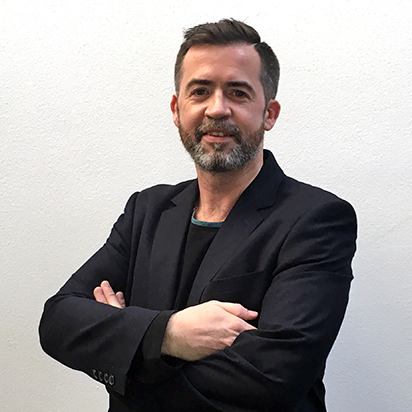
The Workplace of the Future
“Design for the extreme benefits the mean.”
Recent events have led employees and employers of every background to become more open-minded when it comes to new ways of working, from flexible hours to a flexible location – thanks to developments in technology and design, people can increasingly work from anywhere, and very comfortably. To explore the benefits this could have for neurodivergents and neurotypicals alike, FND founder Lucy Hobbs assembled a panel of knowledgeable community members who are pushing forward the case for universal design.
What needs to change to make the workplace more accessible – for everyone?
“The future is personalisation and choice,” said Professor Amanda Kirby, CEO of Do-IT Solutions. As the name suggests, universal design is intended to make life easier for everyone, but it must take into account individual needs and preferences. To get the most benefit out of this workplace philosophy, choosing where you work should be combined with when you work. It marks a shift away from the current culture of reasonable adjustments, which can incorrectly be seen as burdensome and unfair by colleagues, and of feeling compelled to disclose very personal information just to get by. Organisations should adopt an ‘anticipatory welcome’ for new starters, rather than seeing accessibility as an afterthought – this links closely to the social model of disability, which has only grown in strength with the advent of technology.
Seán Fay, co-founder of hiring platform #WholeVillageHiring™, explained how he works to raise awareness of the still-prevalent stigma in corporations that dissuades talented employees from being open about their neurodivergence. “If you looked at 100 [neurodivergent] people in a company, 90 don’t fully know. 10 are diagnosed, seven of those diagnosed will be men. Only three will be women, and then less than one of those women will come forward with their diagnosis. If we have a world that’s based on the idea of people having to put their hands up and coming forward with their diagnosis, we’ve got a whole bunch of problems. Will people do that?” In contrast to the entrepreneurship space, which has a high ND population, corporations still want and expect those they hire to excel at every aspect of a job – which, as the spiky profile paradigm shows, is unrealistic for many people. Flexibility in roles, and using common sense and knowledge of individual strengths to divide labour is a far better way to improve efficiency as well as accessibility.
What top things would you take into a workplace of the future?
Co-creation is key, according to Ashley Peacock, founder of inclusive technology developer Passio. Advancements in machine learning would need to be made in order to quash the biases that currently tend to occur in such systems. Virtual reality would help to personalise a workspace, such as making an avatar to use in a job interview or being able to adjust the sizes of buttons in an app to reduce misclicking. Thorough knowledge of the neurodiversity movement, beyond diagnostic ‘boxes’ and towards acceptance of infinite variations of the way people work, is also a must-have.
David O’Coimin, inventor of co-working solution the Nook Pod, added to the broad perspective of the workplace of the future. To open up the conversation around neurodiversity to otherwise uninvolved parties, he recommended the Do-It Profiler app, developed by Professor Kirby, which uses multiple-choice questions to give users a detailed overview of their cognitive profile. But there’s more to be done when it comes to advancing physical environments: “Designers and architects – they are charged with designing the spaces of our future, and they’re scared. They don’t know – they are afraid to tread into territory around trauma-informed design. So they need guidance, they need help, and that is a hugely important tool.” Learning from companies in different sectors, such as those that design sensory rooms for schools, can also help a business to be more neurodivergent-friendly: “I move around a lot, I always have this energy and my feet are always tapping, so we put fidget sticks underneath the tables… and vibrations in the seat pads – but everyone loves it, and it helps to relax your muscles, and it creates engagement and conversation. It’s a very powerful little thing.”
With plenty more to say, the hosts and panelists opened the floor to the audience – a popular feature at FND events. Questions and answers continued until 8:30 pm, with anecdotes shared, advice given and the supportive feeling of an enduring community strengthened.
Words by Bonny Hazelwood



